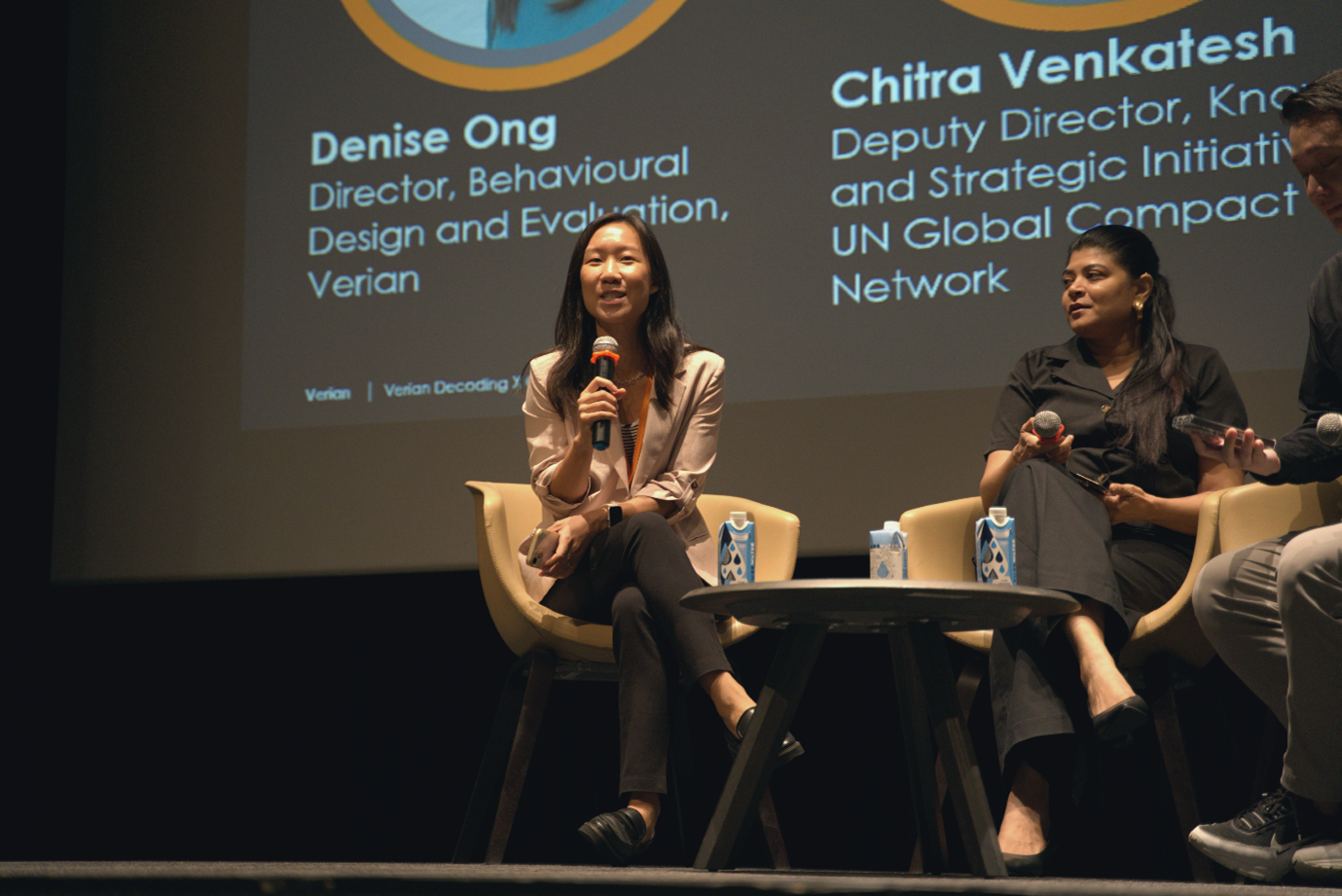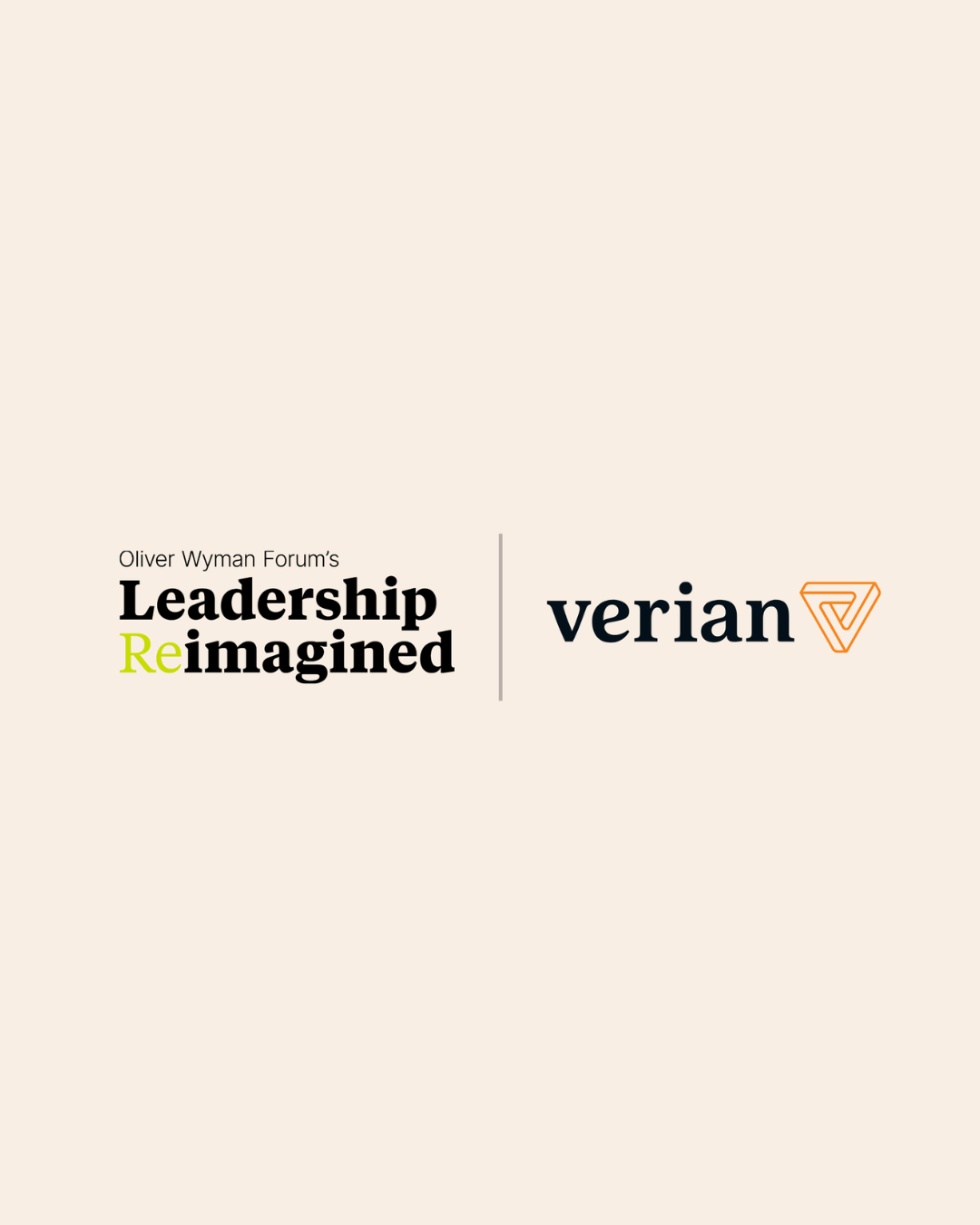Sections
In an era of rapid change and complex challenges, trust is the cornerstone of successful innovation and transformation initiatives. Whether steering corporate sustainability or decentralising healthcare innovation, gaining trust and buy-in from stakeholders is crucial yet often elusive.
Drawing on insights from a recent panel discussion at Verian’s Decoding X conference on 'Designing for Trust' with Chitra Venkatesh (Deputy Director of Knowledge & Strategic Initiatives at the UN Global Compact Network Singapore) and Chua Jia Xiang (Assistant Director & Principal Service Designer at the National Healthcare Group's Centre for Healthcare Innovation), we explore key challenges and effective strategies for fostering trust and engagement.
What are the key challenges in gaining stakeholders’ trust?
1. Bridging gaps in understanding and empathy
In corporate sustainability, one major hurdle is the lack of understanding about what credible transition planning involves. Companies often face accusations of green-washing and transition-washing when they fail to meet their sustainability commitments. This issue is exacerbated by the public's limited awareness of why plans are not followed through and the complexities involved in setting and adjusting plans during uncertain times.
The prospect of corporate backlash amplifying on social media can make companies more reluctant to share their commitments towards sustainability (‘green hushing’), creating a self-reinforcing cycle of further misunderstanding and erosion of trust.
2. Aligning diverse perspectives
Another common challenge lies in differing expectations, priorities and mental models among various stakeholder groups.
In healthcare innovation, efforts to decentralise and promote community-based care sometimes clash with senior leadership’s risk-aversion and demand for rigorous processes. Employees worry about added workload or job insecurity, while patients, caregivers and the public must shift from a paternalistic view of healthcare to taking more control over their health.
"Trust is being able to rely on others and align different values to achieve common goals,” explained Chua Jia Xiang. “However, stakeholders each have their own ‘versions of the truth’, and consensus building can be challenging. It is crucial to work together to advance the conversation, and to acknowledge that multiple 'truths' can coexist within the discussion.”
How might we design strategies for building trust?
1. Empowering stakeholders with knowledge and tools
Building trust requires equipping stakeholders with the necessary tools and knowledge to understand and contribute to the process. In healthcare, providing staff and community partners with service design tools like empathy maps or personas helps uncover the current norms, priorities and mental models of key stakeholders. This knowledge fosters empathy and bridges gaps in understanding between different groups.
In corporate sustainability, offering practical guides – like the recently published ‘Putting Words Into (Climate) Action: Ushering in Corporate Transition Plans’ by GCNS and APCEL – can help stakeholders, including consumers and internal teams, grasp the complexities of sustainability efforts and demystify the process.
2. Reframing to connect with core values
Reframing is a powerful way to align new initiatives with stakeholders' existing mental models.
In healthcare, for example, the concept of 'customer service' was reframed as part of 'care offering' to gain buy-in from healthcare professionals. By aligning the idea of providing excellent customer service with healthcare professionals' core value of delivering the best care to patients, Tan Tock Seng Hospital (part of NHG) was able to overcome resistance and create relevance.
In corporate settings, reframing sustainability efforts as integral to business resilience and long-term success can help align these initiatives with the existing mental models of senior leaders and employees. This approach positions sustainability not just as a compliance issue but as a strategic priority.
3. Communicating change with clarity and authenticity
Effective communication is critical in building trust during transformation initiatives. Raising awareness early about the intended changes, the reasons behind them, and the steps being taken helps reduce fear and uncertainty. Simplifying and chunking information to share incrementally can reduce resistance and build trust by demonstrating ongoing commitment without overwhelming stakeholders.
Introducing change champions within the organisation can assure everyone that they are supported throughout the transformation journey. Leaders play a pivotal role here. Transparent communication about the challenges and progress of transition plans, including moments of inconsistency or failure, can build credibility and trust among stakeholders. “Vulnerability is not a weakness but a powerful source of trust. When leaders are open about challenges and failures, it creates a safe space that builds social connection and authenticity,” emphasised Chitra Venkatesh.
Panel moderator Denise Ong (Director at Verian Singapore) added:
"At Verian, we take a whole-system approach to service transformation, aligning the goals of C-suite leaders with the realities faced by frontline employees and customers. By uncovering the mental models of diverse groups and facilitating opportunities for alignment, genuine collaboration and transparent communication, we help clients not only implement change but also create a culture of trust that sustains it.”
Let's continue the conversation
Looking to navigate the complexities of stakeholder trust and buy-in? Let's explore how we can help you build and maintain trust throughout your transformation journey.
Reach out to denise.ong@veriangroup.com to continue the conversation!

To find out more about the work we do at Verian, subscribe for highlights and insights.

Related insights
Our latest thinking
Subscribe to receive regular updates on our latest thinking and research across the public policy agenda
Our latest thinking
Subscribe to receive regular updates on our latest thinking and research from across the public policy agenda






